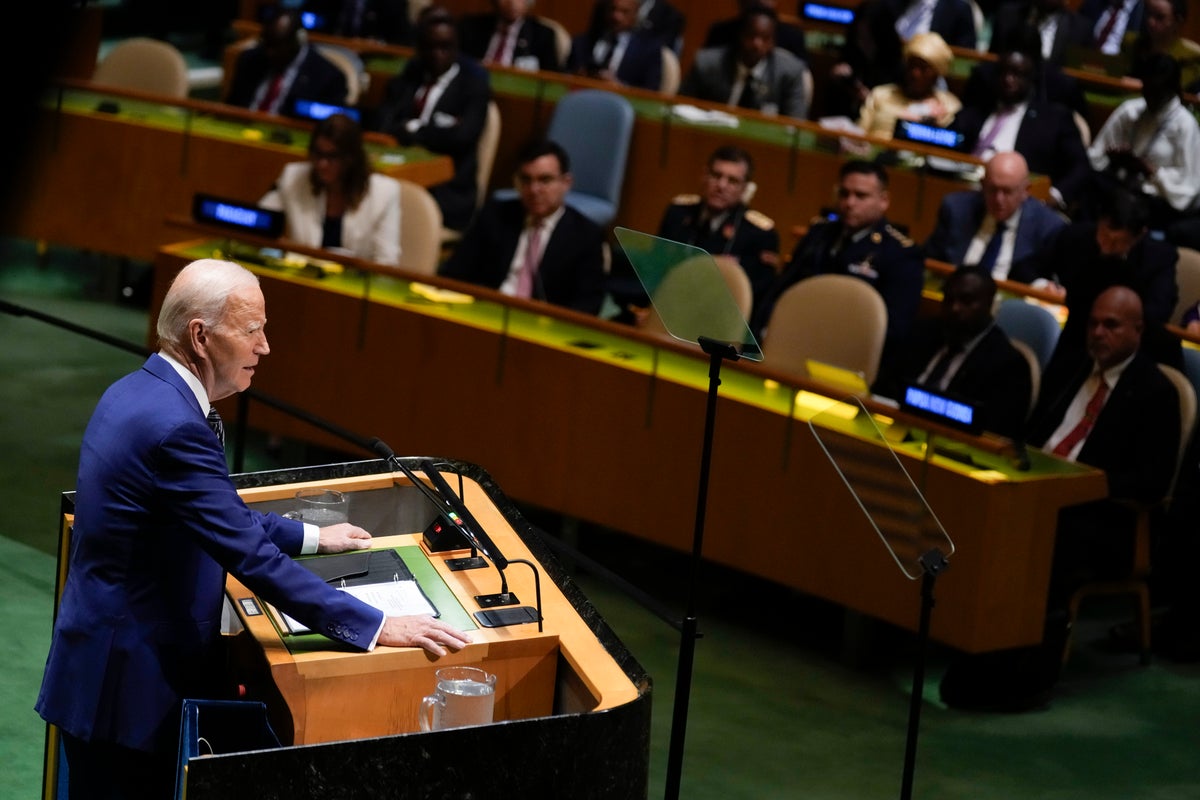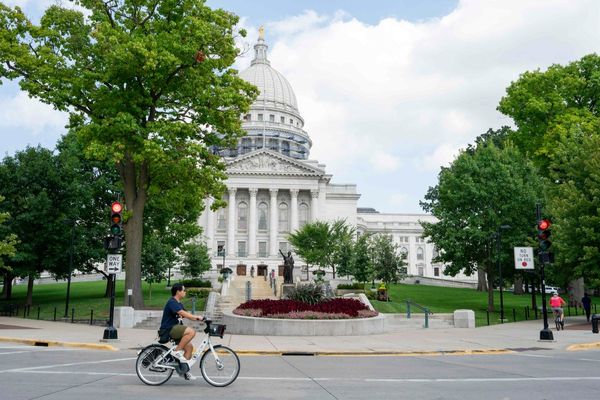
This probably wasn't how President Joe Biden envisioned his big foreign policy week ending.
Biden spent much of the time trying to make the case to world leaders at the U.N. General Assembly as well as to Democratic donors and voters that his decades of foreign policy experience and demonstrated moral clarity set him apart from Donald Trump, the early front-runner for the Republican presidential nomination.
But just as Biden is looking to spotlight his foreign policy chops with his 2024 reelection bid heating up, he is facing a growing list of national security headaches, several of which emerged in recent days.
There is a diplomatic spat between U.S. allies Canada and India over the killing of a Sikh activist on Canadian soil, growing concern about the future of U.S. funding for Ukraine, and the indictment of the influential chairman of the Senate Foreign Relations Committee, Sen. Bob Menendez, D-N.J. Each will test Biden and his administration.
Menendez and his wife were indicted Friday on federal bribery charges that allege the lawmaker provided sensitive government information and took other steps to secretly aid Egypt’s government in exchange for some $480,000 in cash, gold bars and a luxury car.
Under Senate Democratic caucus rules, Menendez was forced to step down as chairman of his committee at a moment when the administration is trying to push Congress to pass an additional $24 billion in assistance to help Ukraine repel Russian forces in the 19-month-old war.
“It just adds to voter fatigue,” said Ross Baker, a distinguished professor of political science at Rutgers University in New Jersey, speaking about the impact of the Menendez charges. “It's moments like these that popularity wears, credibility wears thin — especially with a segment of the electorate that's already cynical. No politician wants to have to compensate for something like this.”
The president is also facing growing global concern that future U.S. aid for Ukraine could become captive to a looming U.S. government shutdown.
Biden on Thursday hosted Ukraine President Volodymyr Zelenskyy at the White House. The Ukrainian leader also visited with lawmakers on Capitol Hill to urge that the United States keep up its assistance.
Biden wants the money included in a government funding measure. But some in the most conservative wing of the Republican Party aligned with Trump are pushing for that aid to be left out of the bill. The vast majority of Republicans and Democrats favor continued support for Ukraine.
“I’m counting on the good judgment of the United States Congress," Biden told reporters as he and his top advisers met with Zelenskyy. "There’s no alternative.”
Biden has stepped up his attacks on Trump's foreign policy record, casting the former president and his close Republican allies as lackeys for Russian President Vladimir Putin. In his U.N. address, Biden also took credit for galvanizing allies to stand up to Putin and for renewing American leadership around the globe.
Biden, 80, has faced increasing skepticism about his age from voters, including some Democrats. He offered perhaps his most fulsome argument this past week about the benefits of having a veteran politician in the White House at a delicate moment for the world.
“When Russia invaded Ukraine, I knew what to do -- because I’ve been doing it for a long, long time,” Biden told donors at a New York City fundraiser this week.
He will need that experience as he tries to navigate tensions between Canada and India over the June killing of the Indian-born Sikh separatist leader Hardeep Singh Nijjar in suburban Vancouver. Canadian Prime Minister Justin Trudeau said on Monday that there were “credible allegations” of Indian involvement in the killing by masked gunmen of Nijjar, who had been wanted by India for years.
The claim has been dismissed by Indian officials as absurd. India on Thursday stopped issuing visas to Canadian citizens and ordered Ottawa to reduce its diplomatic presence in the country. The Canadian foreign ministry said it was adjusting its staff levels at missions in India over concerns about the safety of its diplomats.
Biden has not publicly commented on the matter. White House national security adviser Jake Sullivan on Thursday said the U.S. has had and will continue to have “high-level” contact with New Delhi on the matter.
The situation could complicate Biden's dealings with Indian Prime Minister Narendra Modi, a critical ally as Biden seeks to put greater focus on the Indo-Pacific in the face of China's growing economic might and military assertiveness.
In addition to shared concerns about China, the U.S. and India want to work more closely on the challenges posed by climate change, artificial intelligence, global supply chain resilience and other issues.
The dispute between Canada and India "will probably lead to a little bit more consternation in the U.S.-Canada relationship, but I think we’re willing to risk that a little bit for the upside, which is building this relationship with India,” said Richard Rossow, chair of U.S.-India policy studies at the Center for Strategic and Independent Studies in Washington.
The corruption allegations against Menendez, a fellow Democrat who plays an important role on foreign matters, is a distraction that Biden could do without.
White House press secretary Karine Jean-Pierre declined to comment Friday on the indictment.
The Biden administration hasn't always seen eye to eye with Menendez.
Last year, the senator blasted the White House after Biden administration officials visited Caracas for talks with members of Venezuelan leader Nicolás Maduro's government in an effort to bring home detained Americans and rebuild relations with the South American oil giant. Menendez also has been critical of the administration's efforts to resurrect the 2015 Iran nuclear agreement sealed under President Barack and scuttled by the Trump administration in 2018.
John Feeley, a retired U.S. diplomat and longtime observer of Latin America, said the Menendez indictment was an “own goal” for U.S. foreign policy — using the soccer term for when players inadvertently put the ball into their own net.
“Without prejudging outcome, the indictment alone is a gift to dictators and authoritarians in Havana, Caracas and Nicaragua,” said Feeley, who resigned as U.S. ambassador to Panama in 2018 over what he saw as the moral failings of the Trump administration. “They will point to all of his allegations of their corruption as standard U.S. hypocrisy by jumping to the conclusion he’s guilty.”






